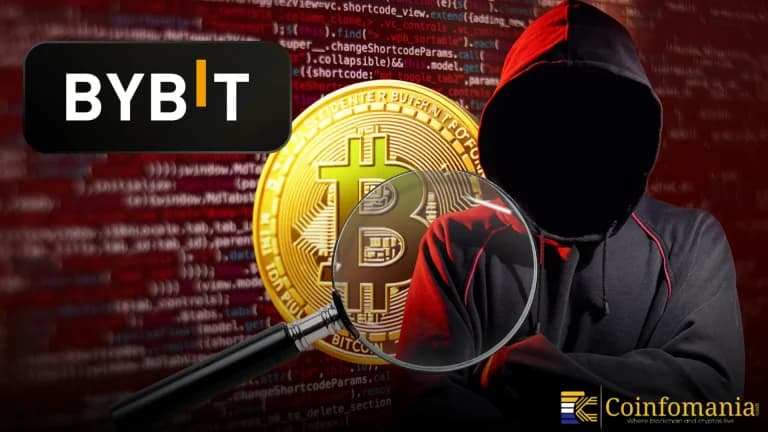Upbit Gains Crypto Listing Authority in South Korea’s New Regulatory Play
South Korea advances crypto regulation with the proposed Crypto Basic Act, while Upbit expands its ecosystem with three tokens.

Quick Take
Summary is AI generated, newsroom reviewed.
South Korea introduces the Crypto Basic Act to regulate digital asset issuance, listing, and exchange oversight.
The bill allows exchanges like Upbit to manage listings independently, preserving market flexibility and innovation.
Upbit supports domestic crypto growth by listing Hyperlane, RedStone, and Sophon amid regulatory progress.
South Korea is moving toward a full-fledged crypto framework. The shift gives exchanges like Upbit new powers to manage token listings. Upbit is already putting that authority into action by adding three new tokens to its roster. They are Hyperlane (HYPER), RedStone (RED), and Sophon (SOPH). The Democratic Party of Korea has announced plans to propose the Crypto Basic Act, aiming to regulate the issuance, distribution, listing, and oversight of digital assets. Unlike earlier proposals, the bill allows individual exchanges to manage their own listings, preserving domestic competitiveness. The combined developments signal a major shift from simple user protection to full-scale industry development.
Hyperlane and RedStone Get Listed
Hyperlane and RedStone trading pairs will launch with BTC and USDT. This is an open-source protocol for blockchain interoperability. The project enables secure and flexible connections between chains. It allows developers to build cross-chain applications with customizable messaging security. RedStone is a decentralized finance oracle service. It delivers fast and scalable data feeds to DeFi protocols. The project aims to offer modular oracle solutions for blockchain ecosystems. Upbit confirmed the listing to support growing market interest. Both tokens will be tradable in the global markets tab under BTC and USDT pairs. The move reflects a rising demand for infrastructure-focused blockchain solutions. These listings, made under Upbit’s own discretion, highlight the growing autonomy of Korean exchanges ahead of the Crypto Basic Act.
Democratic Party Pushes Forward Crypto Basic Act to Broaden Regulatory Scope
The Democratic Party of Korea will introduce the Crypto Basic Act to establish a full regulatory framework for digital assets. The bill covers asset issuance, distribution, exchange listings, and regulatory oversight. This move follows the Crypto Asset User Protection Act and reflects a shift toward industry-wide regulation and growth. The final draft allows exchanges like Upbit and Bithumb to control listings and delistings independently. A Listing Review Committee will support the process but hold no exclusive power. This structure aims to protect domestic competitiveness and retain strong blockchain projects. The bill also mandates clear listing standards and includes penalties for violations.
Sophon Listing and Network Details
Sophon (SOPH) will be tradable in KRW, BTC, and USDT pairs. This is a consumer-facing blockchain using the ZK Stack, based on zkSync’s Elastic Chain model. The blockchain provides Ethereum-level security and ZK ecosystem interoperability. The listing marks an expansion of Upbit’s token offerings aligned with zero-knowledge proof innovations. SOPH supports deposits and withdrawals through the Sophon Chain network. The network runs on core elements such as ZK Router and ZK Gateway. These components enable smooth operation within the ZK Stack ecosystem. Upbit emphasized that trading will begin only after securing enough liquidity. This measure aims to ensure stable trading for users.
Functions and Use Cases of SOPH Token
SOPH serves multiple roles within the Sophon ecosystem. The virtual asset SOPH will be used for staking and governance. Token holders can participate in decision-making processes and secure the network. It will also act as a utility token for dApps built on Sophon. Transaction fees on the Sophon Chain are payable in SOPH. This mirrors models seen in other consumer-oriented blockchains. The project highlights low-latency performance and seamless user experiences. Sophon targets mass adoption by blending user-centric design with strong technical architecture. It aims to bridge mainstream users and advanced blockchain infrastructure.
What to Watch Next in S.Korea Digital Assets?
Upbit will monitor internal liquidity before enabling full trading for Sophon (SOPH). The exchange will announce deposit and trading schedules once liquidity conditions are met. Traders are advised to follow official updates from Upbit for real-time information. The listing comes as South Korea prepares to implement the Crypto Basic Act. The proposed law allows individual exchanges to manage listings while ensuring transparency and enforcement. This shift supports a more flexible and competitive market structure.
The addition of Hyperlane and RedStone aligns with Upbit’s focus on tokens with strong utility. Hyperlane strengthens blockchain interoperability, and RedStone enhances DeFi data integrity. Sophon reflects rising interest in ZK-based networks, combining Ethereum security with user-centric innovation. Market participants expect early trading activity to build gradually. Attention will remain on how exchanges like Upbit leverage their new listing authority to shape Korea’s token landscape. Especially as projects vie for visibility under the evolving regulatory lens.
References
Follow us on Google News
Get the latest crypto insights and updates.


